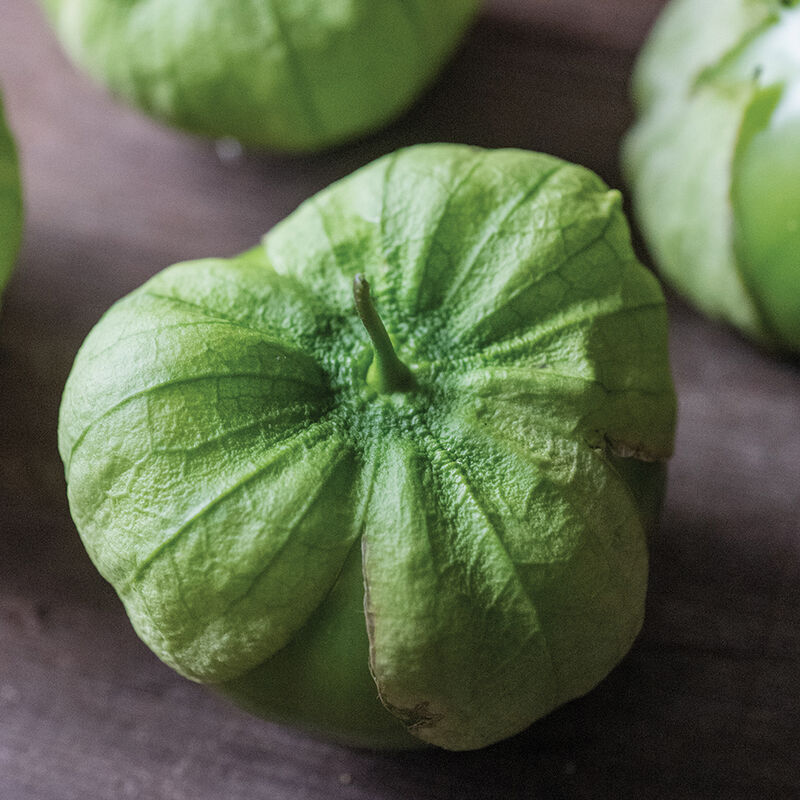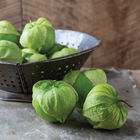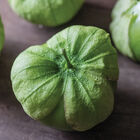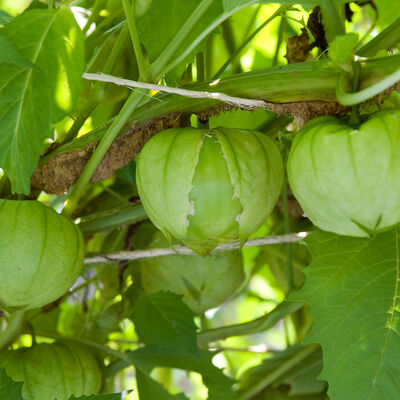Pancho (F1) Tomatillo Seed
Pancho (F1) Tomatillo Seed
Large, uniform fruits for easier salsa prep.
Impressive yield and fruit size for a semi-early tomatillo. Strong, vigorous plant develops a thick trunk to bear the fruit load. Round to apple-shaped fruit. Similar to Super Verde in size and yield, but produces rounder, more uniform fruits earlier and has a more open plant habit. Fruits are about twice the size of Toma Verde's. Specs:
Johnny's Recommended Substitute
Toma Verde
Tomatillo Seed
SCIENTIFIC NAME:
Physalis philadelphicaCULTURE:
Same as tomatoes, but once established, more tolerant to stress from drought, heat, cold, and low nutrients. Well adapted to growing in most regions in the U.S. Typically germinates within 7–10 days.TRANSPLANTING:
Sow in 50-cell trays 4–5 weeks before transplanting. Can also sow tightly in flats and pot-up (see Tomato culture). Keep moist until emergence. Transplant outdoors after danger of frost, about 1–2 weeks later than your earliest tomatoes. Plant tomatillos deeply for adventitious rooting, spaced at 24–36" apart, depending on amount of plant training. At least two tomatillo plants required for successful pollination and fruit-set.CROP MAINTENANCE:
Black plastic mulch and row covers will accelerate growth in cooler regions. Short, yet sprawling plants can grow wild but do benefit from some support, similar to determinate tomatoes. Tomatillos can thrive in containers, but a trellis that elevates the plants but still allows plants to remain open will increase harvest efficiency.DISEASE & PESTS:
See Tomatoes.HARVEST:
Pick weekly (with husks attached) into containers or 10-lb flats. Harvest when fruit is still firm, bright green, and filling the papery husk. Best marketed with husks attached but split open enough to reveal the sticky fruit. If needed, cool rapidly to preserve husk quality. Once softening and yellowing, the fruit is overmature and highly prone to splitting.STORAGE:
Sensitive to cold injury and ethylene gas (affects fruit color). Store dry and in husks at room temperature for 1–2 weeks, or at 41–50°F and 80–90% RH for 3–4 weeks. Husks will naturally dry within 2 weeks, but high humidity is recommended for best freshness. Tomatillos can be held even longer in the refrigerator, either in a paper bag with husks attached, or peeled and washed and put into a plastic bag. Tomatillos can also be frozen for later processing.DAYS TO MATURITY:
From transplant.SEED SPECS:
SEEDS/OZ.: Avg. 18,300.PACKET:
40 seeds. 30–90' depending on germination, thinning, and final spacing.Johnny's is committed to your success, every step of the way.
We want you, our customer, to be 100% satisfied with all of our seeds, tools, and supplies.
If anything you purchase from us proves unsatisfactory, we will either replace the item or refund the purchase price.






